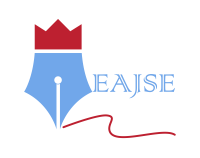Publication Ethics
The Eurasian Journal of Science and Engineering (EAJSE) is committed to upholding the highest standards of publication ethics and integrity. All parties involved in the publication process, including authors, sectional editors, editors, reviewers, and the journal's editorial management team, are expected to adhere to the following ethical guidelines:
Authorship and Originality
Authors should ensure that their submitted manuscripts are original works and accurately acknowledge the contributions of others. Plagiarism in any form is unacceptable and constitutes a breach of ethics. All listed authors must have made substantial contributions to the research and manuscript preparation. Any changes to authorship should be communicated to the journal's editorial office and approved by all involved parties. Submitting the same manuscript to multiple journals simultaneously is considered unethical and is not permitted.
Peer Review Process
Sectional Editors should ensure that the peer review process is fair, unbiased, and transparent. They should avoid conflicts of interest and should recuse themselves from handling manuscripts where they have a personal or professional relationship with the authors. Reviewers should objectively evaluate manuscripts based on their academic merit, relevance, and originality. They should treat all manuscripts confidentially and not use the information for personal gain.
Data and Results
Authors should provide accurate and complete data, methods, and results in their manuscripts. Fabrication, falsification, or manipulation of data is unethical and will not be tolerated. Moreover, authors should retain the original data for a reasonable period of time after publication and be prepared to provide it if requested.
Conflicts of Interest
Authors, sectional editors, editors, and reviewers should disclose any potential conflicts of interest that could influence their judgment or the interpretation of the manuscript. If a conflict of interest exists, the journal managements should be informed and the immediate action should be taken to ensure that it does not compromise the integrity of the review or publication process.
Transparency and Corrections
The journal shares the galley proof af the accepted papers before first online publication. Authors should promptly inform the journal's editorial office of any errors or inaccuracies in their first online published work before making the DOI link active and cooperate to correct them as needed. Corrections and retractions will be made according to established procedures and guidelines. After publishing the DOI link, no corrections will be made.
Ethical Treatment of Subjects
Studies involving human or animal subjects should adhere to ethical standards and regulations, including obtaining informed consent and adhering to relevant ethical guidelines.
Editorial Decisions
Editorial decisions, including acceptance, rejection, or revision of manuscripts, should be based solely on the academic and ethical quality of the work which is approved by the majority of the assigned reviewers. Decisions will not be influenced by factors such as race, gender, nationality, or institutional affiliation.
Plagiarism Detection
EAJSE employs plagiarism detection tools to identify potential instances of plagiarism. Authors should ensure that their submissions are free from any form of plagiarism.
Misconduct and Reporting
Any suspected misconduct, including plagiarism, fabrication, falsification, or unethical behavior, should be reported to the journal's editorial office for investigation. Especially, if the paper was submitted to any preprint, the author should declare this with its link in the “comments to editor” section during the submission. Accusations of misconduct will be investigated thoroughly, and appropriate action will be taken based on the findings.
By adhering to these publication ethics, EAJSE aims to maintain the integrity of the research and scholarly communication process, ensuring the credibility and reliability of the published work and fostering a respectful and collaborative academic community.
